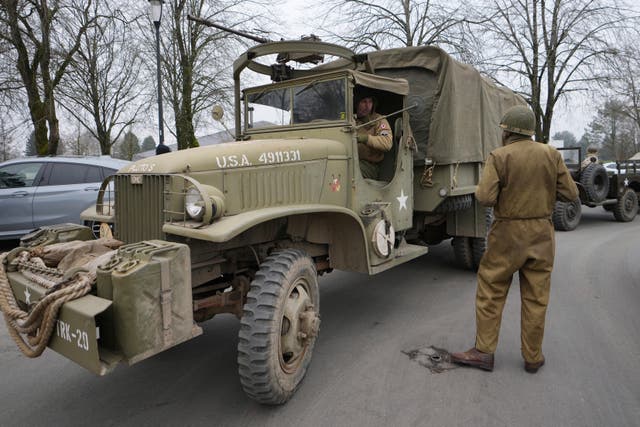Veterans gather to mark Battle of the Bulge when last Nazi offensive was halted
The battle, which began on December 16 1944, lasted a month and severely weakened Nazi forces in western Europe.

The United States, its European allies and a dwindling number of veterans are marking the 80th anniversary of the Battle of the Bulge, one of the most important and deadly battles in the Second World War.
The clash halted Adolf Hitler’s last-ditch offensive and opened the way for the full defeat of Nazi Germany.
At dawn on December 16 1944, more than 200,000 German soldiers threw Hitler’s last hopes in a unexpected attack through the dense woods of Belgium and Luxembourg’s hilly Ardennes.
Making the most of the surprise move, the cold, freezing weather and wearied US troops, the Germans pierced the front line so deeply it came to be known as the Battle of the Bulge.

Initially outnumbered, US troops delayed the attack enough in fierce fighting to allow reinforcements to stream in and turn the tide of the battle by Christmas.
The remembrance and celebrations started on Friday for organisational reasons.
Germany is now an ally of the United States and its wartime partners in Nato.
Hitler had hoped the advance would change the course of the war by forcing the US and Britain to sue for peace, thus freeing Germany to focus on the rapidly advancing Soviet armies in the east.
After the fighting in the Battle of the Bulge ended on January 28 1945, Allied forces invaded Germany, eventually leading to the Nazi surrender and the end of the war in Europe.
It is estimated that about 40,000 Allied and German soldiers died in the battle.





